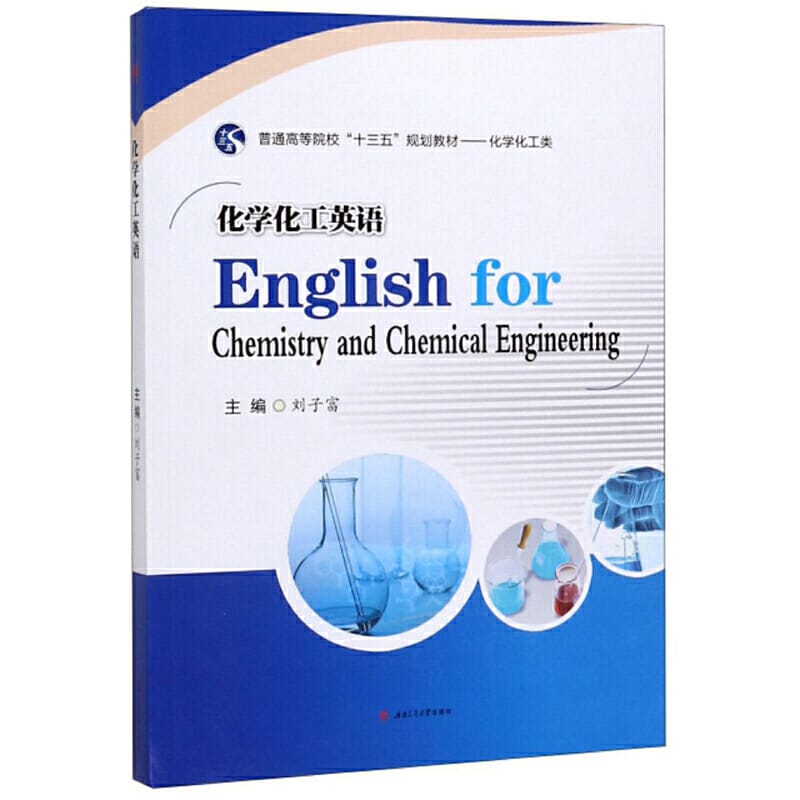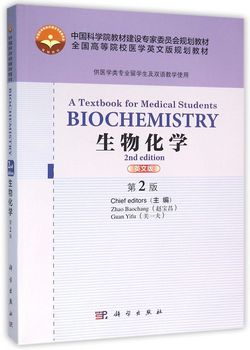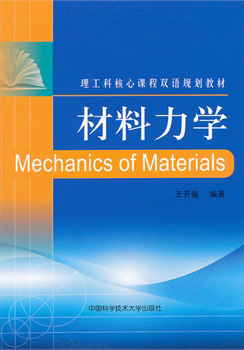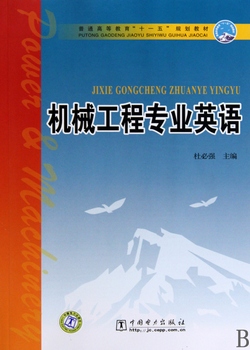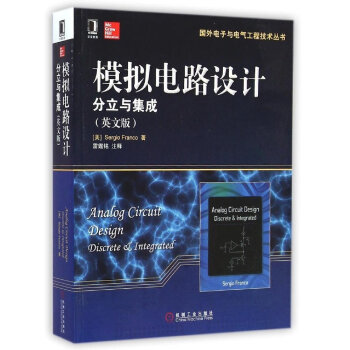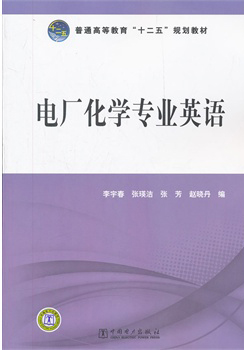化学化工英语 / 普通高等院校十三五规划教材——化学化工类
定价:¥39.00
作者: 刘子富
出版时间:2019-08
出版社:西南交通大学出版社
- 西南交通大学出版社
- 9787564370367
- 285631
- 61223310-6
- 2019-08
- 化学化工
内容简介
本教材是普通高等本科院校化学化工类专业英语教材;内容包括化学化工的发展简史、化学化工类专业相关基本概念、化学反应方面的基本理论、影响化学反应的基本因素、常用化学实验仪器设备的名称和基本功能、常用化学实验技巧等;另外,本书还通过介绍化学和化工领域的名家、欧美知名高校化学化工类专业的发展,为化学化工类学生提供更为实用的指导,充分体现了《大学英语教学指南》中”服务专业”的指导思想。本书也可为英语爱好者提供基本的化学化工类英语基础知识。
目录
Part 1 Chemistry and Chemical Engineering
Unit 1 Chemistry
Unit 2 Chemical Engineering
2.1 Etymology
2.2 History of chemical engineering
2.3 New concepts and innovations
2.4 Safety and hazard developments
2.5 Recent progress
2.6 Concepts
Part 2 Basic Chemistry
Unit 3 Basic Concepts
3.1 Matter
3.2 Atom
3.3 Element
3.4 Compound
3.5 Substance
3.6 Molecule
3.7 Mole
3.8 Ions and salts
3.9 Acidity and basicity
3.10 Phase
3.11 Redox
3.12 Bonding
3.13 Reaction
3.14 Equilibrium
3.15 Energy
Unit 4 Subdisciplines
4.1 Analytical chemistry
4.2 Biochemistry
4.3 Inorganic chemistry
4.4 Materials chemistry
4.5 Neurochemistry
4.6 Nuclear chemistry
4.7 Organic chemistry
4.8 Physical chemistry
4.9 Theoretical chemistry
Unit 5 Pharmaceutical Engineering
5.1 History
5.2 Pharmaceutical industry in the United Kingdom
Unit 6 Pharmacy
6.1 Disciplines
6.2 Pharmacy technicians
6.3 Education requirements
6.4 History
6.5 Practice areas
6.6 The future of pharmacy
6.7 Symbols
Unit 7 Atomic Structure
Unit 8 Chemical Bonding
8.1 Overview of main types of chemical bonds
8.2 History
Unit 9 Chemical Reaction
9.1 Synthesis
9.2 Decomposition
9.3 Single replacement
9.4 Double replacement
9.5 Historical overview
9.6 Basic concepts of chemical reactions
Unit 10 Factors Influencing the Rate of a Chemical Reaction
10.1 Concentration of reactants
10.2 Temperature
10.3 Medium or state of matter
10.4 Presence of catalysts and competitors
10.5 Pressure
10.6 Mixing
10.7 Summary of factors that affect chemical reaction rate
Part 3 Laboratory
Unit 11 Laboratory Apparatus: Chemical Instruments
Unit 12 Recrystallization
12.1 Single-solvent approach
12.2 Two-solvent recrystallization
Unit 13 Acid-Base Titration
Unit 14 Isolation, Purification, and Identification of Caffeine
14.1 Background
14.2 Procedures
Part 4 Academic Reading
Unit 15 A (R)evolution in Chemistry
15.1 Enzymes——the sharpest chemical tools of life
15.2 Human thought has limitations
15.3 Arnold starts to play with evolution
15.4 Mating——for more stable evolution
15.5 New enzymes produce sustainable biofuel
15.6 Smith uses bacteriophages
15.7 Bacteriophages——a link between a protein and its unknown gene
15.8 Antibodies can fish out the right protein
15.9 Antibodies can block disease processes
15.10 Winter puts antibodies on the surface of phages
15.11 The world's first pharmaceutical based on a human antibody
15.12 The start of a new era in chemistry
Unit 16 A Storied Russian Lab is Trying to Push the Periodic Table Past Its Limits——and Uncover Exotic New Elements
Unit 17 The Importance of Synthetic Chemistry in the Pharmaceutical Industry
Unit 18 Extending the Application of Biocatalysis to Meet the Challenges of Drug Development
Part 5 Supplementary Reading
Appendix 1: Introduction about the Undergraduate Programme in Queen's University
Appendix 2: A List of Chemists
Appendix 3: A List of Chemical Engineers
Appendix 4: A List of Vocabulary in Chemistry and Chemical Engineering
Appendix 5: Element Names and Their Pronunciation
Appendix 6: Bilingual List of Common Analytical Instrument and Methods
Appendix 7: Terms Used in General and Inorganic Chemistry
Appendix 8: Terms Used in Organic and Biological Chemistry
Appendix 9: Terms Used in Analytical and Physical Chemistry
References
Unit 1 Chemistry
Unit 2 Chemical Engineering
2.1 Etymology
2.2 History of chemical engineering
2.3 New concepts and innovations
2.4 Safety and hazard developments
2.5 Recent progress
2.6 Concepts
Part 2 Basic Chemistry
Unit 3 Basic Concepts
3.1 Matter
3.2 Atom
3.3 Element
3.4 Compound
3.5 Substance
3.6 Molecule
3.7 Mole
3.8 Ions and salts
3.9 Acidity and basicity
3.10 Phase
3.11 Redox
3.12 Bonding
3.13 Reaction
3.14 Equilibrium
3.15 Energy
Unit 4 Subdisciplines
4.1 Analytical chemistry
4.2 Biochemistry
4.3 Inorganic chemistry
4.4 Materials chemistry
4.5 Neurochemistry
4.6 Nuclear chemistry
4.7 Organic chemistry
4.8 Physical chemistry
4.9 Theoretical chemistry
Unit 5 Pharmaceutical Engineering
5.1 History
5.2 Pharmaceutical industry in the United Kingdom
Unit 6 Pharmacy
6.1 Disciplines
6.2 Pharmacy technicians
6.3 Education requirements
6.4 History
6.5 Practice areas
6.6 The future of pharmacy
6.7 Symbols
Unit 7 Atomic Structure
Unit 8 Chemical Bonding
8.1 Overview of main types of chemical bonds
8.2 History
Unit 9 Chemical Reaction
9.1 Synthesis
9.2 Decomposition
9.3 Single replacement
9.4 Double replacement
9.5 Historical overview
9.6 Basic concepts of chemical reactions
Unit 10 Factors Influencing the Rate of a Chemical Reaction
10.1 Concentration of reactants
10.2 Temperature
10.3 Medium or state of matter
10.4 Presence of catalysts and competitors
10.5 Pressure
10.6 Mixing
10.7 Summary of factors that affect chemical reaction rate
Part 3 Laboratory
Unit 11 Laboratory Apparatus: Chemical Instruments
Unit 12 Recrystallization
12.1 Single-solvent approach
12.2 Two-solvent recrystallization
Unit 13 Acid-Base Titration
Unit 14 Isolation, Purification, and Identification of Caffeine
14.1 Background
14.2 Procedures
Part 4 Academic Reading
Unit 15 A (R)evolution in Chemistry
15.1 Enzymes——the sharpest chemical tools of life
15.2 Human thought has limitations
15.3 Arnold starts to play with evolution
15.4 Mating——for more stable evolution
15.5 New enzymes produce sustainable biofuel
15.6 Smith uses bacteriophages
15.7 Bacteriophages——a link between a protein and its unknown gene
15.8 Antibodies can fish out the right protein
15.9 Antibodies can block disease processes
15.10 Winter puts antibodies on the surface of phages
15.11 The world's first pharmaceutical based on a human antibody
15.12 The start of a new era in chemistry
Unit 16 A Storied Russian Lab is Trying to Push the Periodic Table Past Its Limits——and Uncover Exotic New Elements
Unit 17 The Importance of Synthetic Chemistry in the Pharmaceutical Industry
Unit 18 Extending the Application of Biocatalysis to Meet the Challenges of Drug Development
Part 5 Supplementary Reading
Appendix 1: Introduction about the Undergraduate Programme in Queen's University
Appendix 2: A List of Chemists
Appendix 3: A List of Chemical Engineers
Appendix 4: A List of Vocabulary in Chemistry and Chemical Engineering
Appendix 5: Element Names and Their Pronunciation
Appendix 6: Bilingual List of Common Analytical Instrument and Methods
Appendix 7: Terms Used in General and Inorganic Chemistry
Appendix 8: Terms Used in Organic and Biological Chemistry
Appendix 9: Terms Used in Analytical and Physical Chemistry
References

